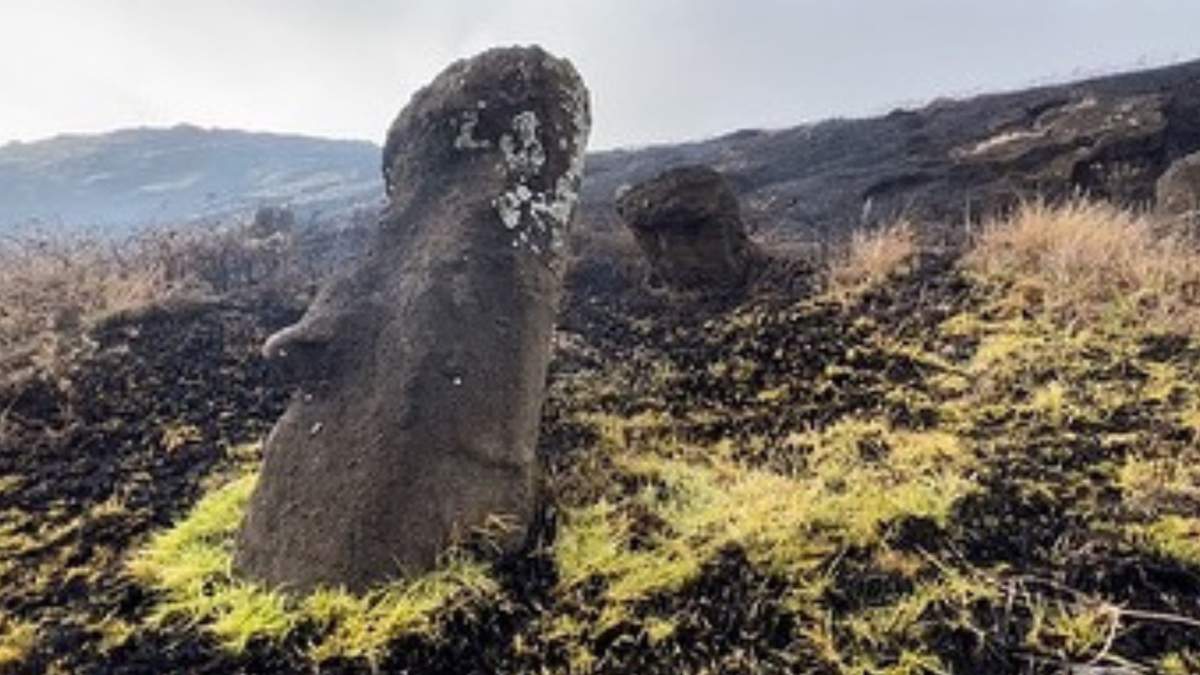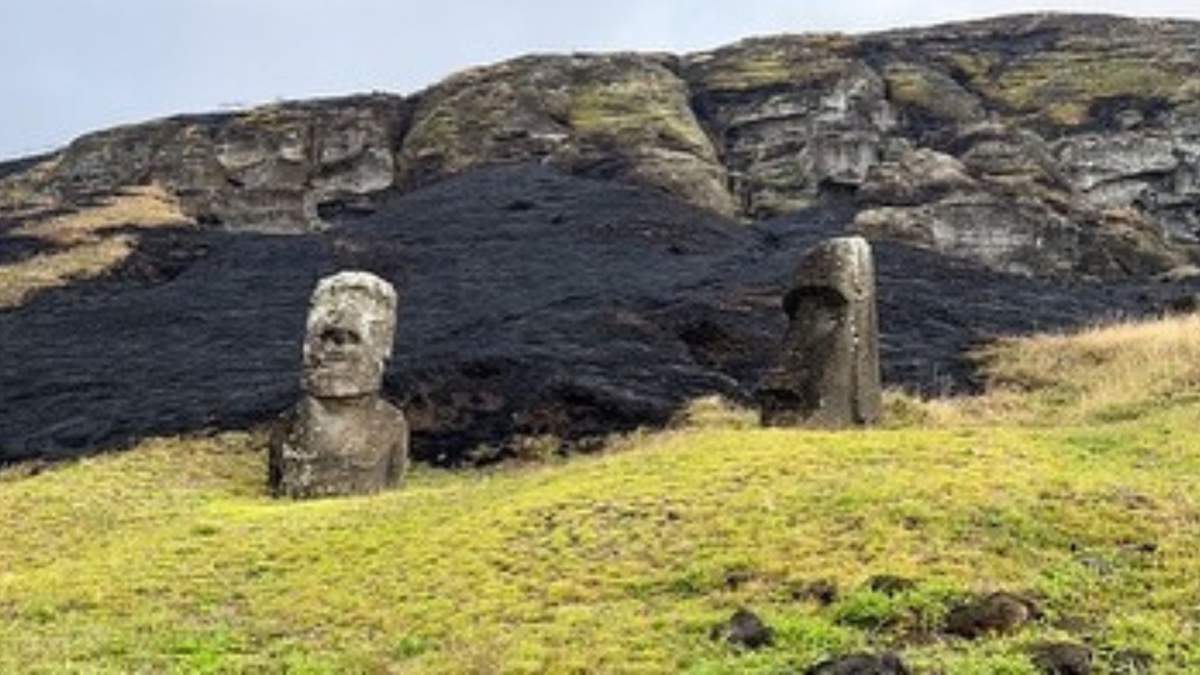A fire has caused damage to Easter Island‘s megalithic statues, called moai, charring some of the iconic stone figures beyond repair.

After the fire broke out on Monday, the flames raged through Rapa Nui national park, 3,500 km off the coast of Chile. More than 100 hectares of land in the Rano Raraku sector was reportedly affected by the fire, including where the moai statues reside.
A statement from Ariki Tepano, the director of the Ma’u Henua community in charge of the management and maintenance of Rapa Nui national park, said the damage to the oversized stone heads is “irreparable.”
“The moai are totally charred and you can see the effect of the fire upon them,” Tepano said.

Get breaking National news
As of now, it is unknown how many statues in Rapa Nui have been damaged. The area is a Unesco World Heritage Site.
There are nearly 1,000 statues on Easter Island. The largest moai weighs 86 tons and is 10 metres tall.

The megaliths are believed to have been built around 1400 to 1650 CE. They were created from stone by the indigenous Rapa Nui people and were placed in a ring around the island, facing inland. Each stone statue represents an ancestor who had died.
Though they are commonly referred to as “Easter Island heads,” the moai actually have entire bodies, some of which have been covered up by soil.
The mayor of Easter Island, Pedro Edmunds Paoa, told a local news broadcaster he believed the fire, which began around Easter Island’s Rano Raraku volcano, was deliberately started. In Spanish, Edmunds Paoa said, “All the fires on Rapa Nui are caused by human beings.”
“The damage caused by the fire can’t be undone,” he continued. “The cracking of an original and emblematic stone cannot be recovered, no matter how many millions of euros or dollars are put into it.”

Rapa Nui’s statement claimed a “shortage of volunteers on the national level” made it especially difficult to quell the fire efficiently.
Only three months ago, Easter Island reopened to tourism, following a shutdown caused by the COVID-19 pandemic. The national park has closed again to allow conservationists to examine the severity of the damage caused by the fire.
- Parents condemn $176 fines for hostel staff after daughters died from tainted alcohol
- Olympic medallist wins bronze, confesses on live tv to cheating on girlfriend
- Canadians wait for flights out of Cuba, aid struggling to get in amid U.S. energy blockade
- U.S. sinks to its lowest spot in new global corruption ranking










Comments
Want to discuss? Please read our Commenting Policy first.